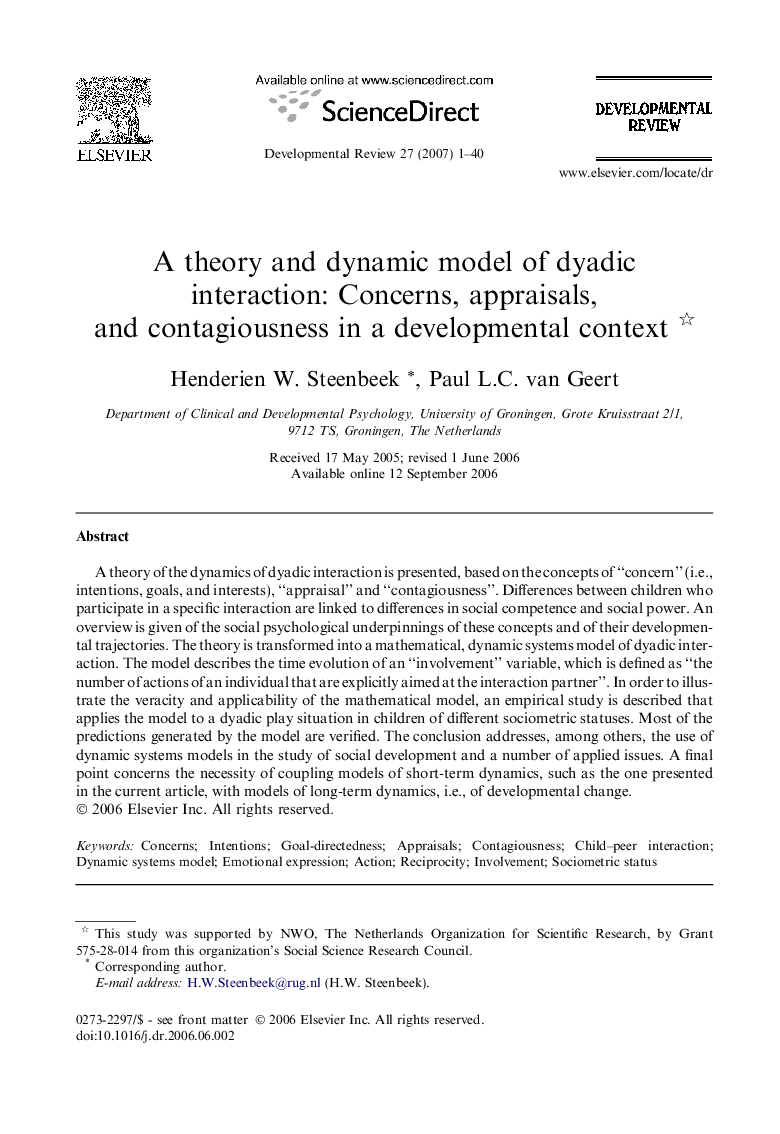| Article ID | Journal | Published Year | Pages | File Type |
|---|---|---|---|---|
| 353558 | Developmental Review | 2007 | 40 Pages |
A theory of the dynamics of dyadic interaction is presented, based on the concepts of “concern” (i.e., intentions, goals, and interests), “appraisal” and “contagiousness”. Differences between children who participate in a specific interaction are linked to differences in social competence and social power. An overview is given of the social psychological underpinnings of these concepts and of their developmental trajectories. The theory is transformed into a mathematical, dynamic systems model of dyadic interaction. The model describes the time evolution of an “involvement” variable, which is defined as “the number of actions of an individual that are explicitly aimed at the interaction partner”. In order to illustrate the veracity and applicability of the mathematical model, an empirical study is described that applies the model to a dyadic play situation in children of different sociometric statuses. Most of the predictions generated by the model are verified. The conclusion addresses, among others, the use of dynamic systems models in the study of social development and a number of applied issues. A final point concerns the necessity of coupling models of short-term dynamics, such as the one presented in the current article, with models of long-term dynamics, i.e., of developmental change.
